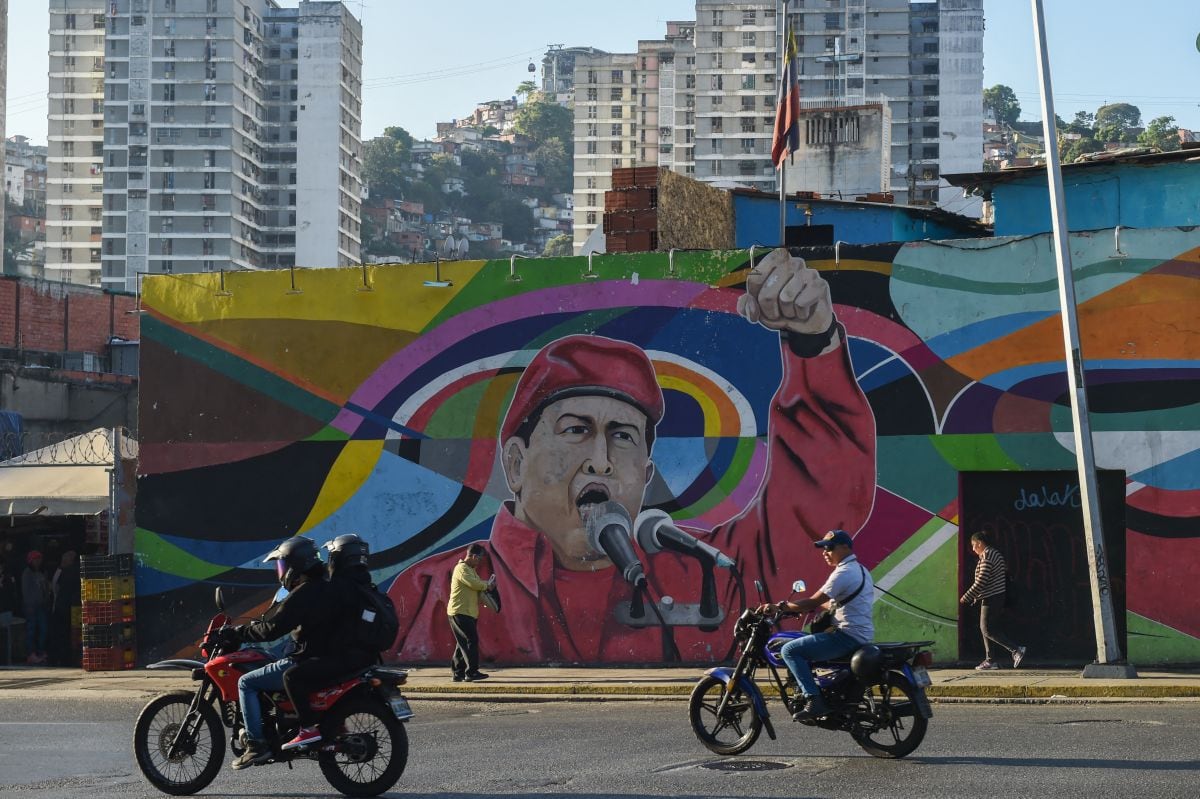
Massive protests repressed by the military and police, with dozens of deaths. economic collapse. A failed parallel opposition government. International sanctions… Venezuela has experienced a decade of conflict after the death of the socialist leader Hugo Chavez on March 5, 2013.
2014: First challenge to Maduro
Opposition Leopoldo López calls demonstrations in January 2014 demanding the removal of President Nicolás Maduro from power, with a balance of 43 deaths in four months.
Chávez’s successor, Maduro had won the presidential elections on April 14, 2013 by obtaining 50.62% of the votes, 1.5 points above his opposition rival. Henrique Capriles.
A sharp drop in oil prices opens a long cycle of recession, inflation, and food and medicine shortages in an economy highly dependent on crude oil.
López was arrested in February 2014 and sentenced in 2015 to 13 years and nine months in prison for “incitement to violence”.
2015: Opposition victory
The United States, due to accusations of human rights violations during the protests, imposes sanctions against high-ranking Venezuelan officials.
The crisis, meanwhile, continues to worsen.
The opposition sweeps the December 6, 2015 in the legislative elections, with 112 of 167 seats.
2016: Clash of powers
As soon as the opposition takes control in January, the decisions of the National Assembly (AN) are annulled by the pro-government Supreme Court of Justice (TSJ), which declares the chamber in contempt for a dispute with three deputies from indigenous communities accused of ” vote buying”, which broke the opposition qualified majority.
The opposition, throughout 2016, promotes a referendum to revoke Maduro’s mandate. The initiative is blocked.
2017: Protests and Constituent Assembly
New protests broke out in April 2017 and left more than 120 dead in five months.
An official Constituent Assembly with absolute power -totally Chavista- is elected on July 30. The body assumes powers of Parliament.
2018: Reelection
The Constituent Assembly advances the presidential elections to May 20, 2018.
The bulk of the opposition boycotts them, denouncing them as a fraud. Maduro wins with 68% of the votes among high abstention.
On August 4, two drones loaded with explosives explode near the stage where Maduro was presiding over a military parade. There are no fatalities.
2019: Guaidó emerges
On January 23, 2019, the head of Parliament, Juan Guaidó, proclaimed himself in a square “president in charge” of Venezuela with the support of the United States and fifty countries, which are unaware of Maduro’s re-election.
On April 30, in front of a military base in Caracas, Guaidó called on the Armed Forces to rise up. He is accompanied by his mentor López, surprisingly released, who flees to Spain after the failure of the uprising.
Washington increases the pressure and imposes an oil embargo.
2020: Operation Gideon
After a journalistic investigation linked them to businessman Alex Saab, prosecuted in the United States for money laundering and close to Maduro, a group of opposition legislators rebelled against Guaidó with the support of Chavismo. Most of the opposition congressmen, however, renew their support.
The Maduro government announces on May 3 and 4, 2020 that it stopped an invasion of foreign “mercenaries”. Former US soldiers Luke Denman and Airan Berry are arrested in the so-called ‘Operation Gideon’ and later sentenced to 20 years in prison.
The opposition boycotts the December parliamentary elections.
2021: Return to the polls
The period of the opposition-majority National Assembly elected in 2015 expired on January 5, 2021.
However, considering the new Chavista Congress illegitimate, the opposition decides to extend the validity of the 2015 NA and Guaidó’s symbolic interim.
The opposition returns to the polls in the regional elections in November, but Chavismo comes out on top.
2022: Fracture
Guaidó’s erosion continues.
After the relaxation of controls by Maduro, the economy experiences a rebound after having contracted 80% in seven years.
Three of the main opposition parties propose eliminating the “interim government” not having achieved political changes. On December 30, 2022, the 2015 NA approves the proposal.
2023: Elections in sight
The elimination of the interim period takes place on January 5, 2023, although the opposition continues to defend the validity of the AN of 2015.
The divided opposition plans primaries in October to choose a unitary candidate to face Maduro in the next presidential elections, scheduled for 2024.
Source: AFP
Source: Gestion
Ricardo is a renowned author and journalist, known for his exceptional writing on top-news stories. He currently works as a writer at the 247 News Agency, where he is known for his ability to deliver breaking news and insightful analysis on the most pressing issues of the day.












